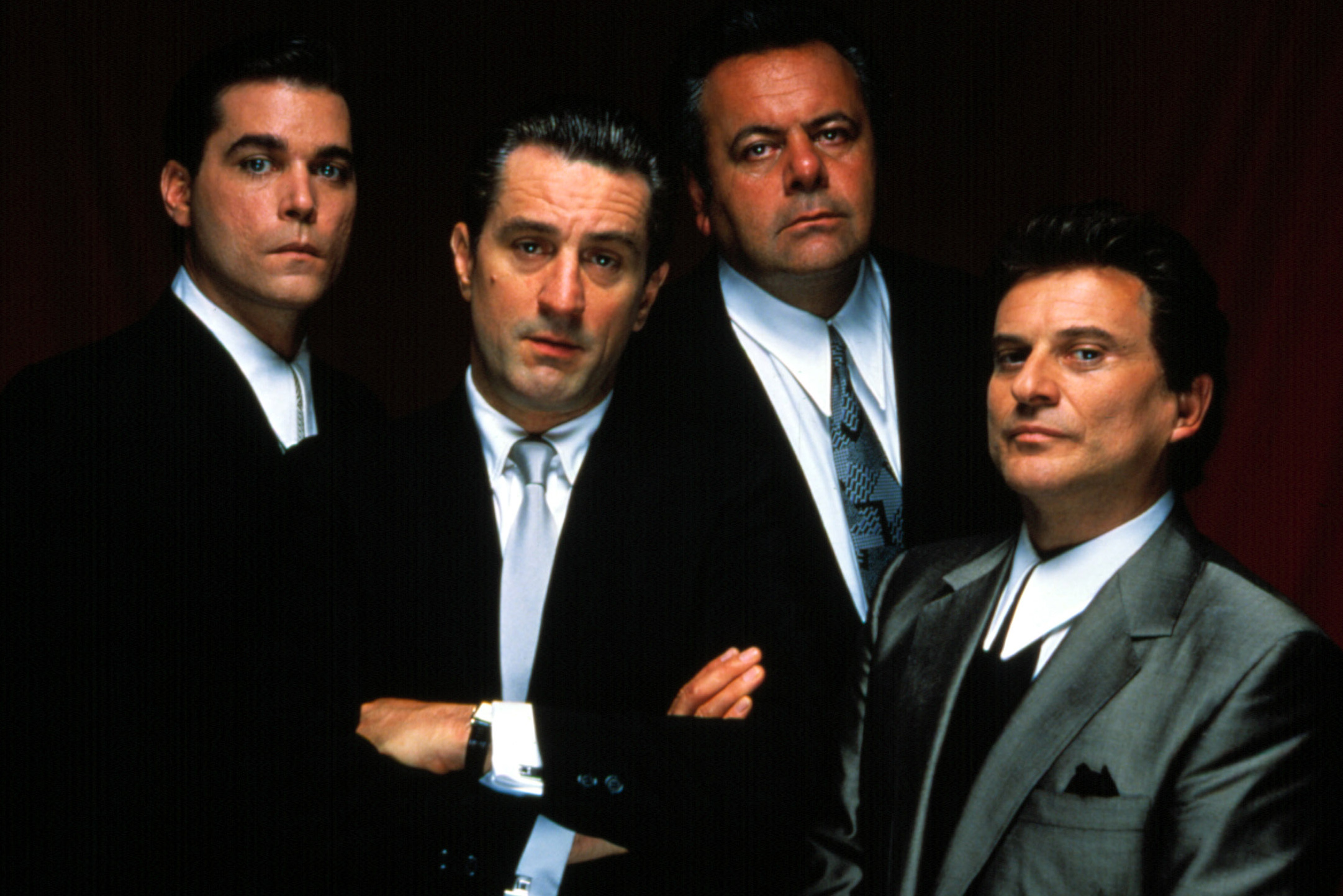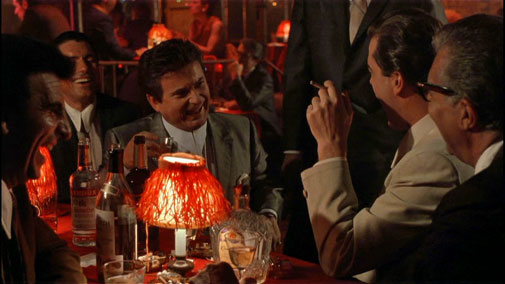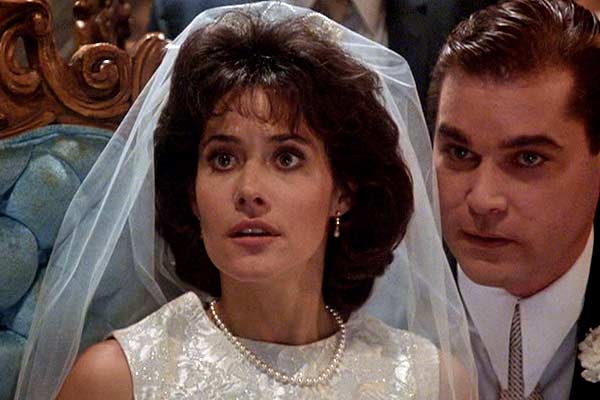David here celebrating 25 years of what might be Scorsese's masterpiece...

When I signed up to write about Goodfellas, the main motivation was simply that I hadn't seen it in years - the ideal opportunity to force a rediscovery before an overwhelming onslaught of new movies. When it came to actually writing this article, though, things didn't seem so simple any more. What could I possibly say that hasn't already been said? Pieces about things you 'never knew', about where the cast are now, about the making of the movie are already widespread across the fare internet shores, because the film remains one of the all-time favourites of the straight white male demographic that dominates both film criticism and film fandom. I mean, did you miss this New York Post article a few months back? Everyone else just doesn’t get it.
The fact remains, though, that Goodfellas is a classic, and incontrovertibly so. The same set of films tend to dominate all-time lists for a variety of reasons, but few, I'd argue, are so impeccably constructed as this one. I wouldn't call it Martin Scorsese's greatest film, because Raging Bull and Taxi Driver are so deeply imbued in their characters' headspaces as to be emotionally revelatory, and The King of Comedy is so eccentrically stimulating, but these are wilder emotional beasts, led by their characters' excesses along unpredictable or majestically fated paths. I would never call Goodfellas cold - it's too smart and jocular for that - but it is made with a level of forensic detail and a startling economy of longform storytelling that make it Scorsese's peak in terms of understanding how every aspect of the filmmaking can work together in perfect synthesis.

Consider the film's most famous scene - "You think I'm funny?" - and how it works on a multiplicity of levels. Joe Pesci is simultaneously terrifying, hilarious and intriguing: as early in the film as it is, this is scene that establishes character as its priority. It is also a prime example of how Scorsese balances the constant threat of violence with the relaxed atmosphere of camaraderie, and how these two frictional moods can co-exist and even compliment each other; the boldness of Ray Liotta's Henry to throw a confident insult back strengthens his masculine bond with Pesci's Tommy. This scene takes place in a panorama that is at once intimate and vast; the interaction is fiercely direct between the two men, yet it also lives in full view of their acolytes and is fully a performance of masculine superiority and comic bravado.
Scorsese's focus on such an essentially throwaway comic moment also brings into context how precisely he tells what could so easily have been a dry linear biopic as a brighter, vaster collage of a particular lifestyle. Kyle Smith's ridiculous article does at least understand that the film is less a gangster film than a tale of brotherhood, although Scorsese is much more aware of the men's foibles than Smith is. He explores the world through proto-Paul Thomas Anderson tracking shots like the path through the corridors of a nightclub’s service areas, and freezes frames to provide vital character beats in the form of casual anecdotes. Generic story beats like Henry and Karen's wedding are used not as story markers but as opportunities to strengthen the audience's understanding of this whole world. Scorsese trusts in Karen to narrate and trusts in the audience to grasp her character through how she describes and relates to what we are learning about.
 Using Karen as a female counterpoint to Henry's laconic voiceover further unbalances Smith's contention that women cannot understand the film. Karen comes to understand this world perhaps better than then men inside it, precisely because she can observe it from the distance enforced upon her. When she screams at Henry, cluelessly thinking his nights with the boys are instead nights with "ready-made whores", it is only because she underappreciates how important the masculine bonds are and how shallow their enactment is. Despite their immense acquired wealth and social status, these Goodfellas favour inactivity over all else. Scorsese and Nicholas Pileggi's screenplay is famously sharp and witty, and the banter is quick-witted and amusing, but Scorsese's direction is also aware of the dangerous friction in this makeshift family - as Henry eventually realises, a skull above your head reads the same as your entire Mafia life with these men.
Using Karen as a female counterpoint to Henry's laconic voiceover further unbalances Smith's contention that women cannot understand the film. Karen comes to understand this world perhaps better than then men inside it, precisely because she can observe it from the distance enforced upon her. When she screams at Henry, cluelessly thinking his nights with the boys are instead nights with "ready-made whores", it is only because she underappreciates how important the masculine bonds are and how shallow their enactment is. Despite their immense acquired wealth and social status, these Goodfellas favour inactivity over all else. Scorsese and Nicholas Pileggi's screenplay is famously sharp and witty, and the banter is quick-witted and amusing, but Scorsese's direction is also aware of the dangerous friction in this makeshift family - as Henry eventually realises, a skull above your head reads the same as your entire Mafia life with these men.
GoodFellas has a reputation as one of the preeminent films about the Mafioso existence, and it’s a well-deserved one, but like all great films, Scorsese’s technical masterpiece is not solely comprehensible on that level. It is a fascinating dissection of masculinity, in all its grandeur and pretence, but most simply it is an engrossing story perfectly told, each stylistic whim unfurling with specific purpose and laying out a clear story in the fashion of a custom designed gown, unique but perfectly created to an exact end. And that end is mighty good, fellas. (Sorry. A little.)